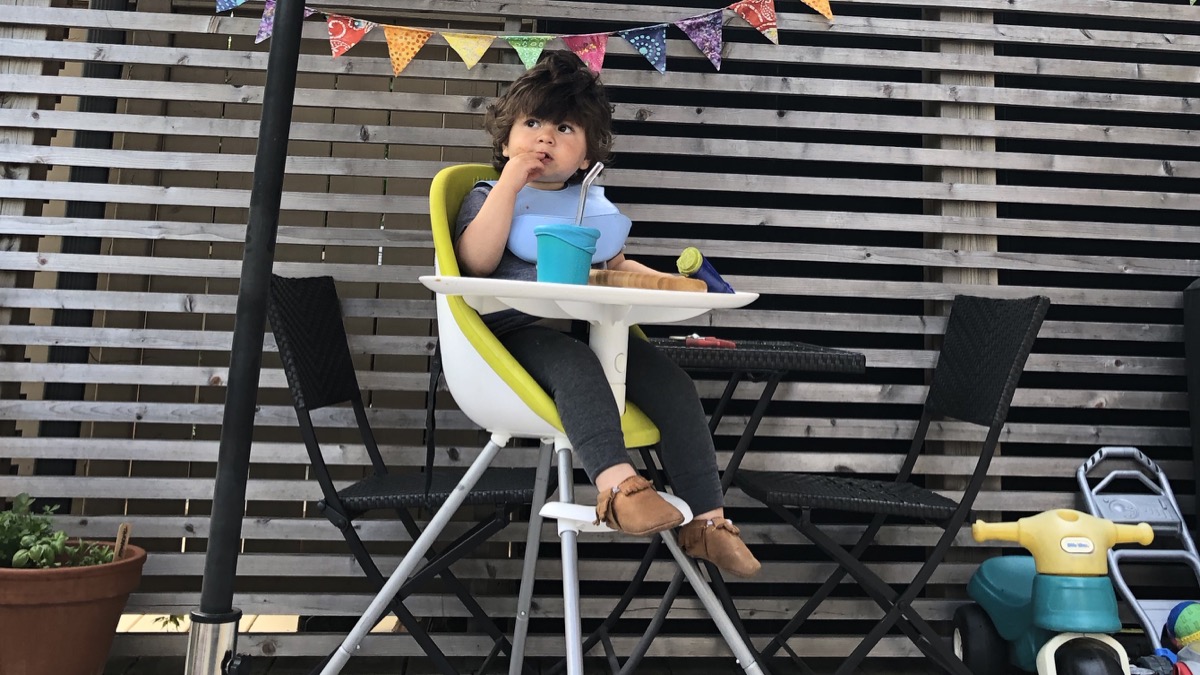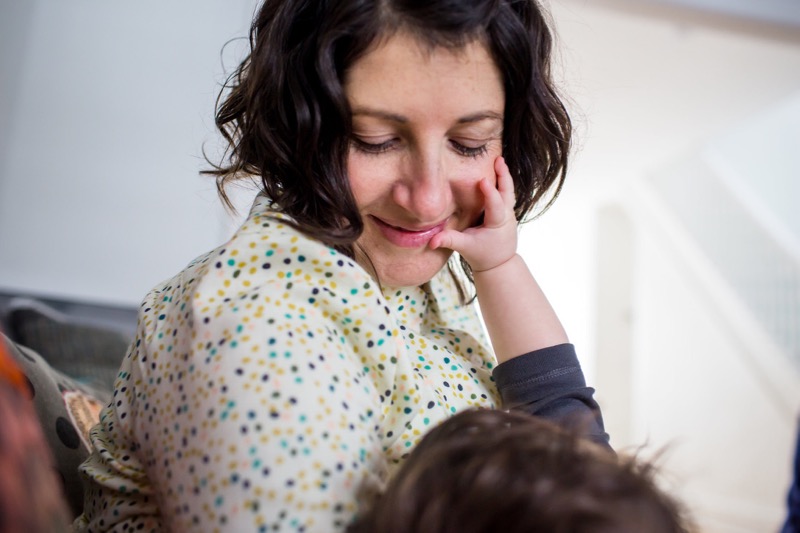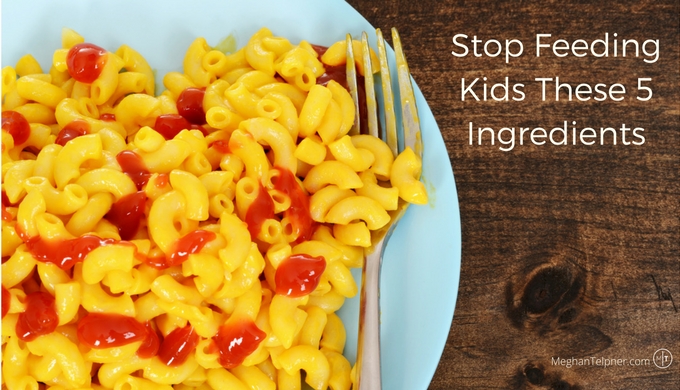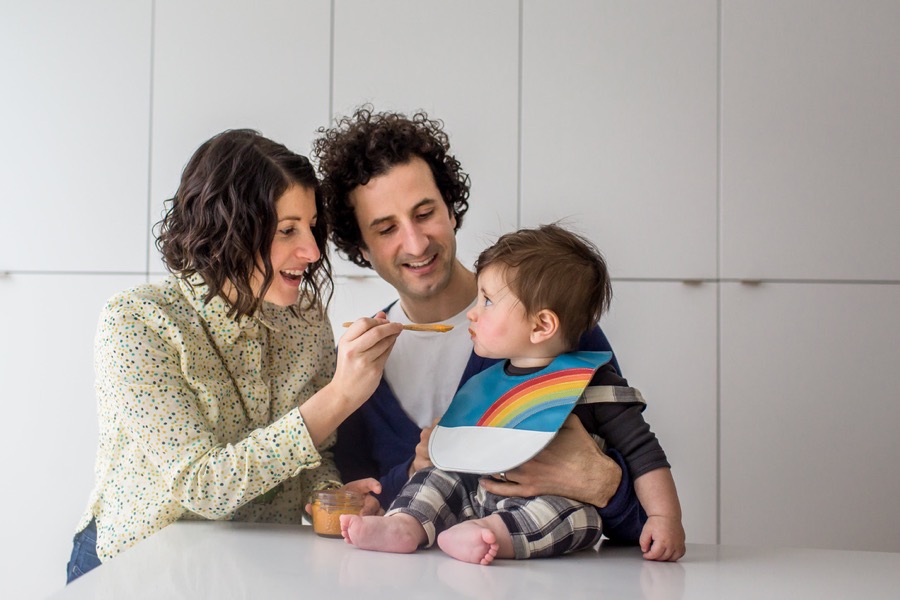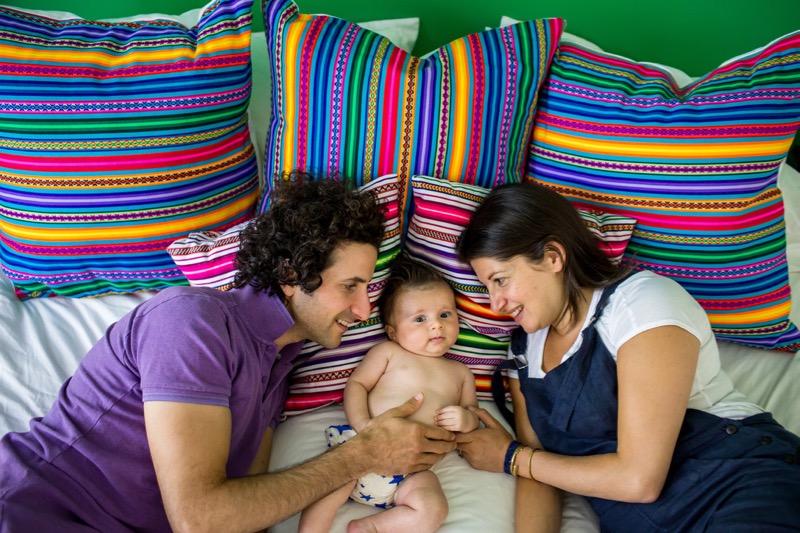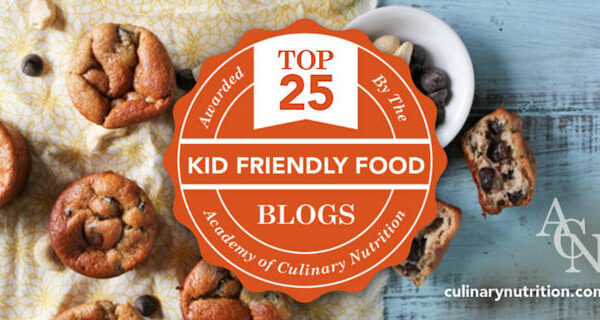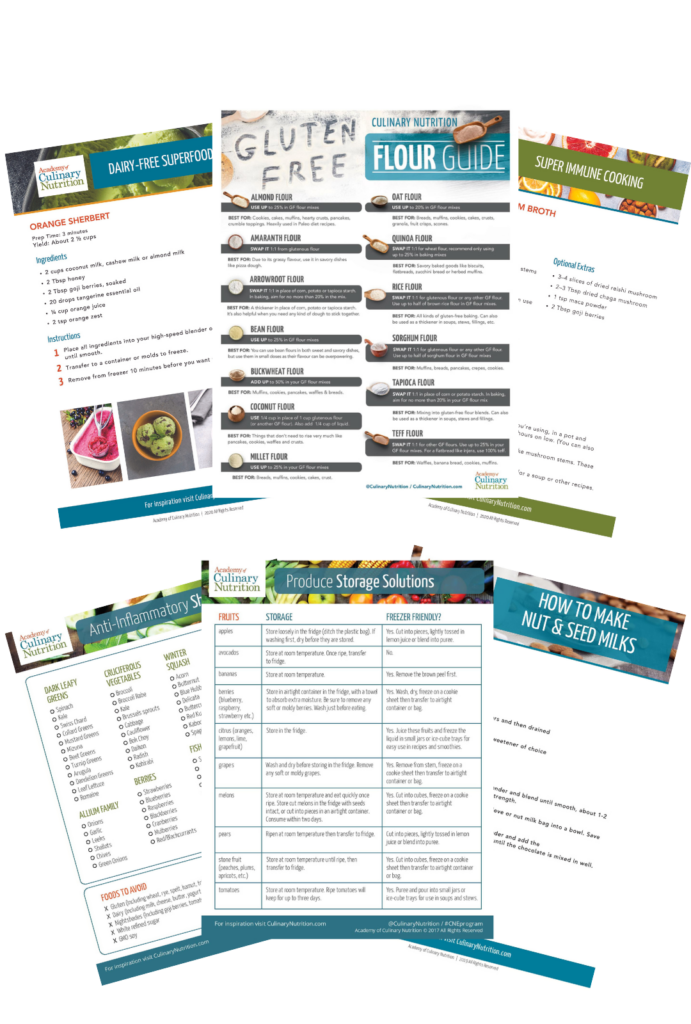How To Encourage Your Kids to Eat Healthier
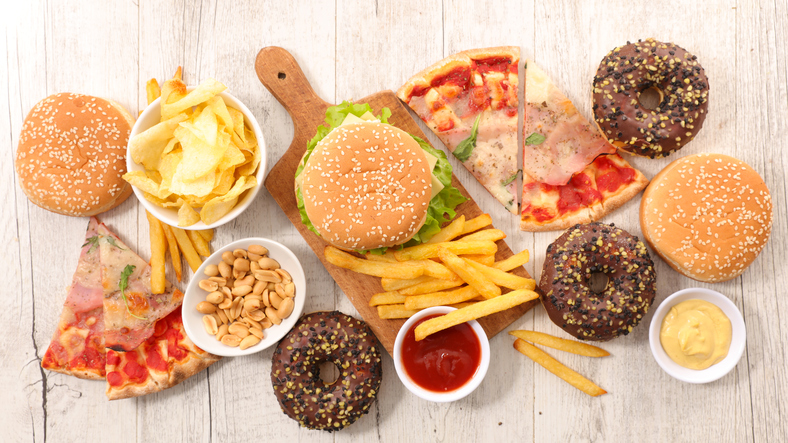
It’s much easier to nourish our children when they’re young and we’re the ones making the buying decisions. But as they get older, it can often become much more difficult to ensure they eat well. Between peer pressure and a child’s desire for independence, maintaining good culinary nutrition habits can be a challenge even for households that have established a history of whole food, kid-friendly eating. For advice about how to help your kids develop healthy food habits, we turned to one of our greatest resources: our Culinary Nutrition Experts. Many of them are parents with a wealth of wisdom and knowledge to share in this area.
how to get your kids to eat healthier: Advice From Culinary Nutrition Experts
 Name: Melanie Connolly
Name: Melanie Connolly
Location: Quakertown, Pennsylvania
Advice:
I know how much parents want to control what their kids eat, but the older they get the less control you have over them. They are curious and want to experiment, and they want to feel like their peers. Your kids are listening, and even though they may not always make the best choices when they are not with you, they do have your voice in their heads. Keep being that role model, offering them healthy foods at home, etc. Allow them this chance to test the boundaries of their voices and choices. Most likely they will discover that these foods don’t feel good for them, and when they come home and see that you have healthy foods, it will remind them that this is the best choice.
In the end, you have to trust that you have given them the best information and knowledge base. They must now navigate the big wide world for themselves and figure all of this out. I know it’s hard to let them do this, but it’s part of growing up. You are an amazing parent for giving them this foundation, and they will thank you for it.
 Name: Cindy Spratt
Name: Cindy Spratt
Location: Ymir, BC
Advice:
Kids are smarter than we often give them credit for. I cannot emphasize how important it is to arm kids with education. In our home we talk about food a lot and not just which foods are good and which ones aren’t, but what real food truly is and how detached we have become, as a society, from recognizing and prioritizing health.
As a practitioner, I advocate that parents shop, cook, learn and eat food with their kids. Show them how to decipher labels and recognize the worst food additives, but also give them the tools to make good decisions for themselves. Education gives kids the background information, the “whys”, and the control to make better and better decisions as they grow into wiser humans. I feel this is one of the best ways to help the next generation.
 Name: Kelly Schlueter
Name: Kelly Schlueter
Location: Waterloo, ON
Advice:
We struggle with this big time in my house. All kids are different so we focus on empowering our kids to make their own educated choices. We talk a lot about portions, and if you choose to eat a treat today then you should choose to not eat one tomorrow. If they have a birthday party coming up, we try and avoid junk for a few days in advance so they can indulge a bit. I stock a lot of fruit in the house, which seems to satisfy the sweet cravings and gives them something easy to grab without having to ask permission. I also make a lot of homemade healthy snacks so they never feel like they are having to deprive themselves of deliciousness.
It’s one thing to control what is in your own house, but they are constantly presented with junk food at school, parties, grandma’s house, etc. so they need to know how to make their own choices as they grow up. They won’t always make the best choice, you have to be patient and understanding because, while you may fail some days in the short run, you hope to make an impact down the road. Don’t be too hard on them or yourself, or you risk making eating a chore fraught with guilt instead of something fun and nourishing.
 Name: Laura McCall
Name: Laura McCall
Location: Boulder, CO
Advice:
Most junk food and processed foods use outrageously bright food colorings. When my kids ask for those items in the store, I ask them, “Is that a color you’ve ever seen in nature?” When they inevitably say no we then talk about Real Food vs Food Like Substances: “Real Food comes from the earth, and is grown on farms or in gardens. Factories make Food Like Substances which can be eaten but are not beneficial to growing up strong and healthy.” I try to keep it light, but also make it clear that those are items we don’t buy or eat.
 Name: Jillian Parkhurst
Name: Jillian Parkhurst
Location: Santa Fe, NM
Advice:
Have kids take part in planning out snacks for the week, as well as making them. In my experience teaching pre-kindergarten through teen years, the ownership and hands-on pieces were the most compelling ways to get kids to make healthier choices at school. Hopefully it would help at home too!
 Name: Lindsay Grant
Name: Lindsay Grant
Location: Saint John, NB
Advice:
Things that have worked for us:
- Get them involved in the kitchen early. Maybe they can choose what’s for dinner and you provide the items that are going to be used. Also let them decide on snack options, “would you rather have _____ or _______” so there are two healthy options but they still have a choice.
- Plant some vegetable seeds, then get them to care for them and watch them grow. My daughter loved having her very own carrots last summer, and couldn’t wait to eat them.
- When there’s a birthday party or someplace I know there will be junk food, I give a few reminders – for example, “Look for the healthy food too, remember how your belly feels when you eat too much sugar.” I know that she will probably still want a piece of birthday cake when she’s at a birthday party, but she’s also reaching for the veggies and fruit and making better choices.
 Name: Jodie Marzett
Name: Jodie Marzett
Location: Gainsville, VA
Advice:
I had my kids watch food documentaries with me during the Culinary Nutrition Expert Program and they were annoyed, at first. Now, however, they grocery shop with me and always ask “Mom, is that GMO?” Since they know better, they do better! They now help me make our food and make their own almond milk (or coconut milk, etc), as well as our snacks. They are part of the process, not a “victim” of it, because they were directly involved in the transition. It was empowering for them and I now put the choice on them, and 99% of the time they choose the healthier choice! Even better, they spread the knowledge with their friends and teachers at school when asked about their “weird lunches”.
 Name: Gloria Ruiz
Name: Gloria Ruiz
Location: London, UK
Advice:
As kids get older, eating becomes something social and sometimes just plain functional. At this age it’s more important to socialize and fit in, unfortunately eating cheap food comes along with it. I would really focus on what they eat at home and try not to control what they eat on their own. I wouldn’t force the situation and I would be very careful as they can feel guilt or shame and sneak out to eat if they know you don’t approve.
Try to involve them with home cooking, in an inviting, not forcing way. If they create delicious, healthy food they will eat it. Have you heard of the IKEA effect? It’s a psychological theory which explains how people place a disproportionately high value on things they have created. If they cook healthy food for the family, they will want to eat it and they will enjoy eating it!
Also, try to keep foods at home interesting and delicious. Never stop exercising their senses, and they will find junk food boring eventually and return to healthy food.
Click here to learn more about how you can become a Culinary Nutrition Expert.
 Name: Lisa Levine
Name: Lisa Levine
Location: Seattle, WA
Advice:
One thing I did for my kids for years was quickly put out a huge plate of things like cut-up veggies, hummus, rice crackers, sliced apples and/or pears, almond butter and celery, strips of nori, pickles, olives – whatever non-junk whole foods I had around – as soon as they got home from school. They’d always be hungry and usually dig right in if it was put on the table. If that was available they’d rarely ask for or eat anything different. I had the reputation of being the “healthy” mom (i.e. never ever had soda or processed foods) but their friends got in the habit of asking if they could come over after school and they would always polish off all the food I put out.
 Name: Sara Fins
Name: Sara Fins
Location: Plainsview, NY
Advice:
Modeling, modeling, modeling! If you model healthy eating habits and explain to your kids why you eat the way you do, they will take it in. Teach kids to listen to their bodies and to understand how certain foods affect them. For example, my daughter will no longer eat cupcakes at birthday parties because she knows they will give her a headache.
 Name: April Wellings
Name: April Wellings
Location: Hamilton, ON
Advice:
Teach kids about healthy food and snacks and have the healthy snacks more easily available. Try not to bring junk food items into the house, which I think is a good idea for both kids and adults. By teaching kids about healthy foods they will be better able to make a good choice.
More Resources to Help Your Kids Resist Junk Food
- Top 25 Kid-Friendly Food Blogs
- 12 Family Friendly Recipes to Eat Together
- How To Raise Adventurous Eaters
- How to Get Kids in the Kitchen and How This Can Change Everything
- Choose Your Own Adventure Family Meals
- 20 Best Gluten-Free Kid-Friendly Snacks
- How to Survive When You Change Your Child’s Diet
- Healthy Batch Cooking 101
- How to Engage Your Picky Eater
- 6 Ways to Handle Picky Eaters
- Best Real Food Healthy Frosting Recipes
- Top 20 Dairy-Free Chocolate Recipes
- 20 Best Dip + Hummus Recipes
- 9 Packaged Staple Foods You Can Easily Make From Scratch
- Kitchen Hacks to Help You Get Dinner on the Table Fast
- Culinary Nutrition Guide to Natural Sweeteners
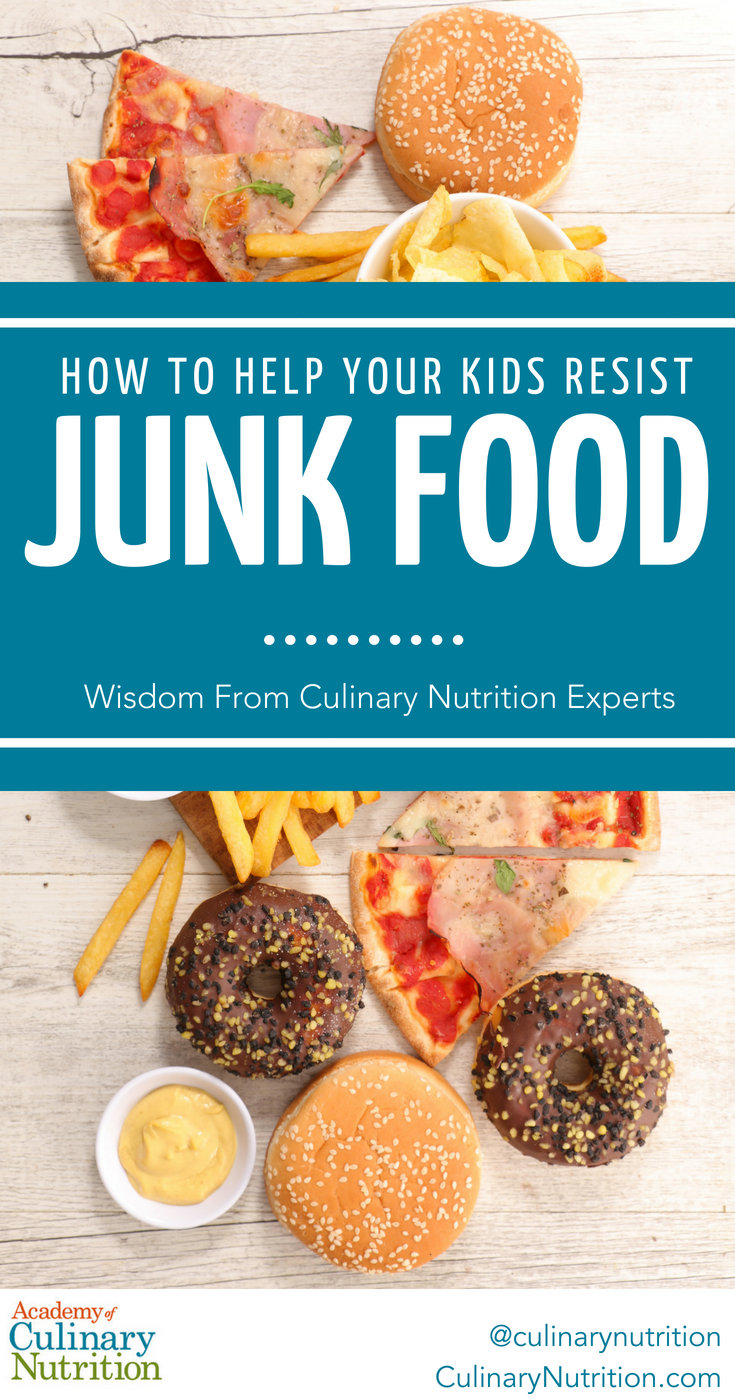
Photo credit: iStock/margouillatphotos
Free Resource Library
Enjoy more than 40 downloadable guides, recipes, and resources.
















